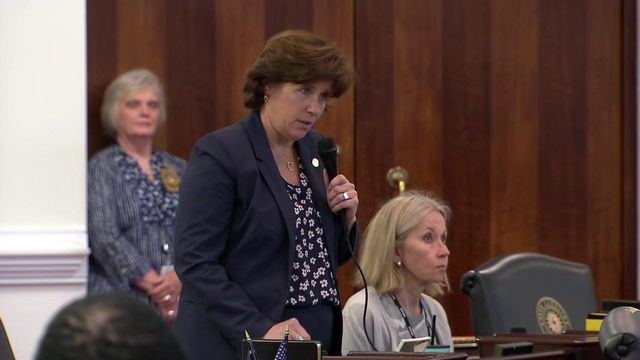Make $70,000 a year? Your kid could get a voucher under this bill
Senate votes to increase income cap for a state private school scholarship program.
Posted — UpdatedYour browser doesn't support HTML5 video.
Senate Bill 609 also cuts out a cap that the state has used to limit the number of kindergartners and first-graders eligible for the Opportunity Scholarships program, which gets tens of millions of dollars a year from North Carolina taxpayers.
Democrats pushed back against these changes on the Senate floor, saying a program billed at its start years ago as a way to help poor students get out of struggling public schools is morphing into a private-school subsidy for middle-class families who may not have even tried their local public schools.
That puts it on a path to go from a $54.8 million-a-year program now to $134.8 million a year.
Gov. Roy Cooper sought to phase out the program in his budget proposal released earlier this year, keeping students already in the program on scholarship, but not giving out new ones. The Republican majority in control at the General Assembly quickly rejected that, as well as legislation Democrats filed to cap the program at its current funding and use the leftover money in public schools.
The House budget looks to boost program usage instead by spending as much as $2.5 million on a website to help parents pick private schools. Up to $500,000 would be used to hire a nonprofit to market the program.
Both those ideas would be funded only if there's enough money left over after vouchers have been funded for the year under the House budget proposal, which recently passed that chamber and moved to the Senate for more discussion.
Though the program has more money than it needs to meet demand from eligible students, there's also a waiting list of sorts. Republicans said more than 520 students would have used these vouchers last year if various caps weren't in place.
"This bill really does ease some of those cries from those parents," sponsoring Sen. Deanna Ballard, R-Watauga, said on the floor.
The bill cleared the Senate Wednesday, 27-18. Sen. Ben Clark, D-Hoke, was the only Democrat to vote for it, joining Republicans who voted for the bill en masse.
The program's income cap is based on the federal free or reduced-price lunch rate. Currently, families making as much as 133 percent of that rate qualify, and the bill would move that to 150 percent.
It also would remove language from state code that says no more than 40 percent of the money left after current students have their vouchers renewed for the year can be used to give new scholarships to children entering kindergarten or first grade.
Sen. Natasha Marcus, D-Mecklenburg, said these changes would take the program well beyond its original design.
Parents, she said, "won't even have to try public school."
Related Topics
• Credits
Copyright 2024 by Capitol Broadcasting Company. All rights reserved. This material may not be published, broadcast, rewritten or redistributed.
